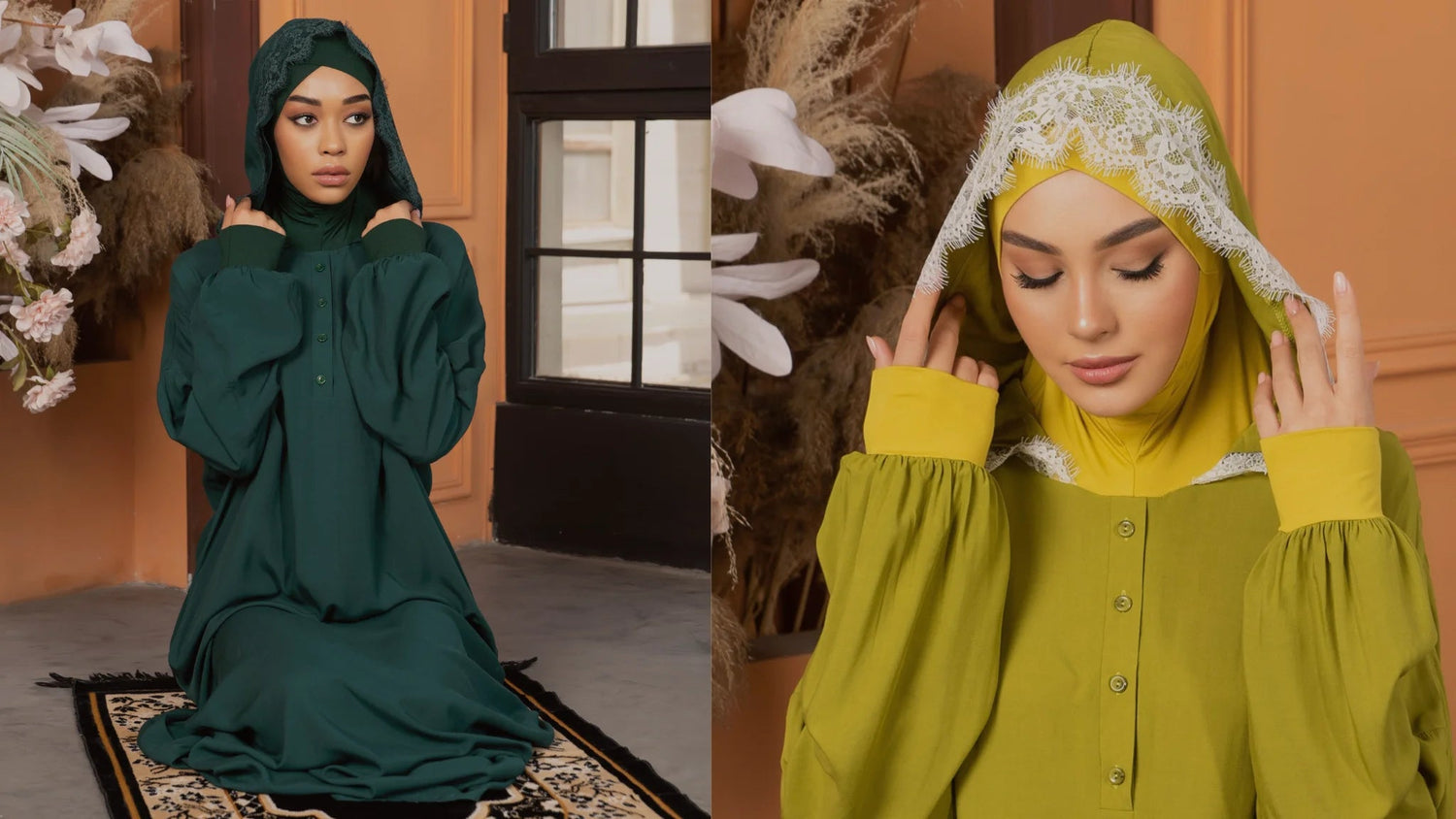Halal Living for Muslim Women
Living a halal lifestyle as a Muslim woman is about much more than just dietary choices—it’s a holistic approach to life that aligns with Islamic principles and nurtures both your body and soul. Whether you’re new to the concept or looking for practical tips to enhance your journey, this guide will walk you through everything you need to know. From understanding Islamic dress codes like the Abaya, Jilbab, and Niqab to embracing faith in your daily routine, halal living is all about balance, mindfulness, and devotion.
1. What Does Halal Living Mean for Muslim Women?
Halal living refers to leading a life that is permissible and pleasing to Allah (SWT). For Muslim women, this encompasses every aspect of daily living, including food, clothing, relationships, and even personal habits. The goal is to integrate Islamic teachings into modern life in a way that strengthens your connection to Allah.
For example, choosing halal food options is one part of it, but so is dressing modestly in clothing like the Abaya, Jalabiya, or Hijab. It’s not about restrictions; rather, it’s about embracing a lifestyle that brings peace and purpose.
Transitioning to a halal lifestyle might feel overwhelming at first, but starting with small, meaningful changes can make the process enjoyable and fulfilling.
2. Modesty in Dress: Understanding Islamic Clothing
Islamic dress is an integral part of halal living for Muslim women. It reflects modesty, a key value in Islam, while allowing women to express themselves. Here’s a quick overview of common modest clothing options:
- Abaya: A long, loose-fitting robe often worn over regular clothes. It’s elegant, practical, and widely used in many Muslim-majority countries.
- Jalabiya: Similar to the Abaya but often features more intricate designs, making it suitable for special occasions.
- Chador: A full-body cloak typically worn in Iran, providing maximum coverage while maintaining grace.
- Hijab: A headscarf that covers the hair and neck, symbolizing modesty and devotion.
- Khimar: A longer veil that covers the shoulders and upper body, providing additional coverage.
- Shayla: A rectangular scarf draped loosely around the head and neck, offering a stylish yet modest option.
- Jilbab: A full-length coat or outer garment worn over everyday clothing for added modesty.
- Niqab: A face covering that leaves only the eyes visible, often chosen for its emphasis on privacy and humility.
When choosing modest clothing, remember that personal style and cultural preferences play a role too. Modesty doesn’t have to compromise beauty or confidence—it enhances them.
3. The Role of Faith in Everyday Decisions
Halal living is deeply rooted in faith. Every decision, big or small, can become an act of worship if done with the right intention (niyyah). For example:
- Shopping for Clothes: Choosing an Abaya or Shayla that fits Islamic guidelines can be a form of devotion.
- Eating Out: Opting for halal-certified restaurants shows mindfulness of Islamic dietary laws.
- Spending Time: Prioritizing prayer, Quran reading, or learning about Islam enriches your spiritual connection.
Even mundane tasks like preparing meals or dressing for the day can feel more meaningful when they align with your values. The key is to pause and reflect on how your choices bring you closer to Allah.
4. Building a Daily Routine Around Halal Practices
Incorporating halal practices into your daily routine is easier than you might think. Here’s a simple example:
- Morning: Start your day with Fajr (the dawn prayer) to set a peaceful and mindful tone.
- Dress for the Day: Choose modest clothing like a Khimar or Hijab, pairing it with an Abaya or Jilbab for comfort and style.
- Meal Prep: Focus on halal ingredients and include sunnah foods like dates or honey for added blessings.
- Midday: Take a break for Dhuhr prayer, reflecting on your intentions and goals.
- Evening: Spend time with family or engage in a hobby, ensuring it aligns with halal principles.
Consistency is key when building a halal lifestyle. Small changes can eventually transform your routine into one that reflects faith and mindfulness.
5. Finding Confidence in Modesty
One common misconception about modest clothing like the Niqab, Shayla, or Jilbab is that it limits individuality. In reality, it empowers Muslim women to define their beauty on their own terms, free from societal pressures.
Here are some ways to embrace confidence while dressing modestly:
- Experiment with colors, patterns, and accessories to reflect your personality.
- Share your story to inspire others who may be hesitant about adopting modest fashion.
- Remember that true beauty lies in character and kindness—not just appearances.
Wearing an Abaya or Hijab is a proud declaration of faith, one that deserves to be celebrated.
6. Embracing the Spiritual Benefits of Halal Living
Halal living isn’t just about external practices; it’s also about cultivating inner peace. Following Islamic guidelines brings barakah (blessings) into your life. For instance:
- Improved Discipline: Sticking to halal practices requires self-control, which strengthens your character.
- Stronger Relationships: Upholding Islamic values fosters kindness, honesty, and trust in your interactions.
- Peace of Mind: Knowing that your lifestyle pleases Allah brings a sense of contentment and joy.
Halal living creates a beautiful balance between dunya (worldly life) and akhirah (the hereafter). It’s a journey worth embarking on, one step at a time.
Final Thoughts
Halal living for Muslim women is about more than rules—it’s a way to enrich your faith, find purpose, and lead a fulfilling life. Whether you’re choosing an elegant Abaya for everyday wear or pausing to make a halal meal, every act becomes an opportunity to connect with Allah.
As you take your first steps into this lifestyle, remember to be patient with yourself. Growth takes time, and every small effort counts. Surround yourself with supportive communities, and don’t hesitate to seek guidance from knowledgeable sources.
With the right mindset and intentions, halal living becomes a path of beauty, peace, and endless blessings.

